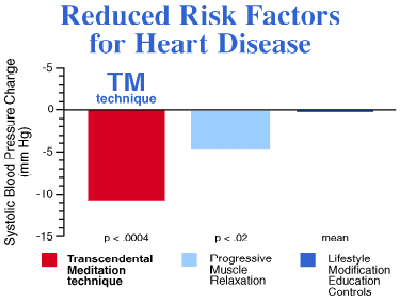





PUBLICATION: Journal of Clinical Psychology
A statistical meta-analysis conducted at Stanford University of all avail- able studies-146 independent outcomes-found that the Transcendental Meditation programme was substantially more effective in reducing anxiety, the most common sign of psychological stress, than all other meditation and relaxation techniques, including muscle relaxation. This meta-analysis- the preferred scientific procedure for drawing definitive conclusions from large bodies of research-showed that the positive effects of the TM programme could not be attributed to subject expectations, experimenter bias, or quality of research design. (Journal of Clinical Psychology 45: 957-974, 1989.)
PUBLICATION: Journal of Creative Behavior
It is widely recognized that creativity and innovation are key success factors in today's competitive business environment. The Transcendental Meditation programme significantly increases creativity, as shown by this study using the Trance Tests of Creative Thinking. Five months after learning the Transcendental Meditation technique, individuals practicing the TM technique scored significantly higher than members of a control group on three dimensions of creative thinking. Other studies have shown that the TM programme alleviates the stress and anxiety that can obstruct creativity while making the functioning of the brain more orderly (as measured by EEG coherence), which has been positively correlated with creativity. (Journal of Creative Behavior 13: 169-190, 1979.)
PUBLICATION: Hypertension
The Transcendental Meditation programme has been shown to significantly reduce risk factors for heart disease, including hypertension, high cholesterol, anxiety, hostility, and smoking. In a randomized study published in the journal of the American Heart Association, individuals with mild hypertension experienced significant reductions in systolic and diastolic blood pressure over a 3-month period after learning the TM technique. These reductions in blood pressure were substantially greater than those experienced by individuals in two control groups-a "usual-care" group that received training in improved diet and exercise and a group practicing muscle relaxation. The TM technique produced reductions in blood pressure equivalent to those produced by anti-hypertensive drugs but without their adverse side effects. A related study of health insurance data over a five-year period found that individuals regularly practicing the TM technique required 87% less hospitalization for heart disease than the norm. (Hypertension, 26: 820-827, 1995. Psychosomatic Medicine 49: 493-507, 1987.)